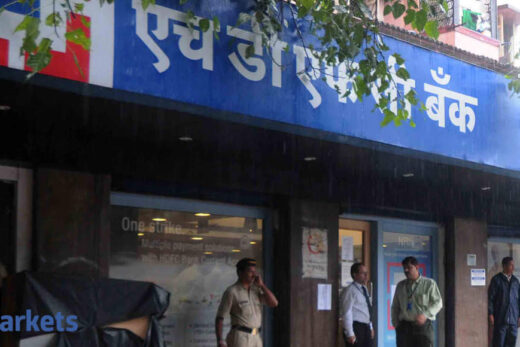In multiple emails to the Reserve Bank of India (RBI) and the IndusInd board in October, a whistleblower group comprising officials of the BFIL had alleged that the bank had ever-greened loans, inflated revenues and under-reported nonperforming assets. The emails followed a month after similar allegations by former BFIL vice-chairman MR Rao who, in his resignation letter, had said that the loans disbursed without customer consent did not appear as “process lapse” but a “deliberate attempt to shore up repayments.” The letters from the whistleblower group and Rao’s parting observations were reported by ET on Friday.
Reacting to the whistleblowers’ allegations, a statement issued by the bank on Saturday, said, “…the technical glitch was rectified expeditiously. Out of the above, only 26,073 clients were active with the loan outstanding at Rs 34 crore, which is 0.12% of the September end portfolio. The bank carries necessary provision against this portfolio. The standard operating procedure (SOP) has since been revised to make biometric authorisation compulsory.”

While strongly denying allegations of ‘ever greening’, the IndusInd statement said, “All the loans originated and managed by BFIL, including during the Covid period which saw the first and second waves ravaging the countryside, are fully-compliant with the regulatory guidelines… During the pandemic, the customers faced operational difficulties and some have turned intermittent payers, though a large part of them demonstrated a strong intent to repay on many occasions. Basis the requirements, the Bank adopted a multi-pronged approach depending upon the need of the client. (sic)”
The whistleblower group has blamed BFIL CEO Salabh Saxena and CFO Asish Damani for the alleged under-provisioning of loans running into thousands of crores. Neither of them responded to ET’s query on the whistleblower emails. According to a media report, both Saxena and Damani may soon quit BFIL and join Spandana Sphoorty, a micro-finance institution.
However, this could not be independently confirmed. According to the IndusInd release, the loans follow a weekly repayment model and the customers are required to make payments week on week. “.. if there is any default, the same gets recorded as missed instalments. In view of the weekly repayment model, the concept of ever greening is infeasible,” said the statement. “The level of non-performing assets reported by BHIL is significantly lower than other MFIs. So, we would like to know more, given that many lenders have seen a drop in collection efficiency during the pandemic.. If a loan is given by mistake without taking the borrower’s consent, it should be reversed,” said an analyst who did not wish to be named.



